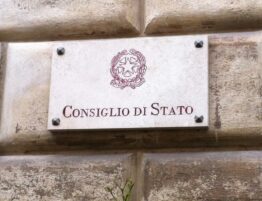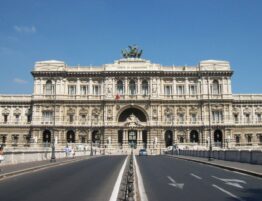
As is often the case in Italy, when the law is silent, case law outlines the contours of the new model fact situations. This is the case, for example, with the Uber smartphone service, in relation to which law makers have not yet taken a stance, failing to typify the contractual relationship between the person using the service and the digital platform providing it.
For those who do not know it, Uber offers different types of services that provide the customer with a vehicle and a driver, such as for example UberBlack, UberVan and UberPop.
In particular as regards the UberPop service, through a GPS mobile phone, the customer is able to locate a nearby driver in the Uber portal, to check the name of the driver and the other passengers’ feedback on him, to know how long it will take him to get there, the route to take, and to know in advance the tariff that the costumer will have to pay to be transported to destination. Payment is made by credit card directly to the operators of the Uber service.
That said, the Justice of the Peace of Genoa recently intervened – with judgement no. 509 of 02.02.2015, filed on 02/16/2015 – by canceling the fine given to a driver registered in the Uber portal who had been fined by the municipal police of Genoa, because he was allegedly working as a taxi driver without having the necessary license, thus committing the offense under Article. 86, paragraph 2, of the Italian road code.
The judgement has a particular significance as it is the first decision in Italy to define the service offered by the Uber portal, which, in this case, is considered not as taxi service but as car hire with driver, governed by Articles 3 and 13 Law 21/92.
However, the decision can not be read as an opening of the Italian courts towards the Uber service, since, in its first lines the Justice of the Peace notes that even if considered as car rental service with driver, the driver must have the appropriate municipal license and the vehicle must be registered in the appropriate records of the Department of Vehicles; otherwise the penalty provided for by art. 85, paragraphs 4 and 4-bis of the Italian road code applies.
Finally, it should be observed how the European Territorial Courts have shown a negative attitude towards Uber with regard to the allegations of violation of competition rules and of the rules on passenger transport, made on several occasions by the public transport operators. In Spain, for example, the Juzgado de lo Mercantil of Madrid declared the UberPop service to be illegal, because of unfair competition, ordering the closing of the Uber website, the blocking of the application on App Store, Google Play, and Windows Store and of all the services that allow the costumer to download and use the mentioned software. In Germany -even though with temporary measures- the Territorial Courts also ascertained Uber’s violation of competition laws and the Landgericht Berlin, declared the illegality of UberBlack because the Personenbeförderungsgesetz (German law on the transport of passengers) states that the rented car should begin its journey from the car rental premises and should not be intercepting passengers while already on the streets. With regard to the UberPop service, the Landgericht Frankfurt stated that the application is contrary to the German Law on Transport, because the drivers do not have the requirements to drive motor vehicles for the transport of passengers for profit and because the amount paid by customers does not exceed the cost of the trip.
It is, therefore, logical to expect that the Italian Courts, and above all the Ministry, will express themselves with regard to this innovative service, either prohibiting or legitimating it within the Italian legal system.
(Bologna Office – Federico Tassinari – 051 2750020)









